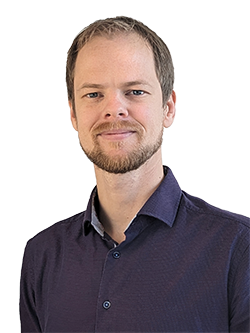
My name is Martins Zaumanis, and I am a first-generation scientist from a country that not many will find in a map (Latvia). I work at Empa materials research institute in Switzerland conducting research on road pavements and have an h-index of 28. But let’s get to why I am here, writing about communication in science.
Back in the summer of 2018, I was invited to speak at one of the world’s largest events of the road industry in Berlin. To my surprise, instead of a research presentation, I was asked to tell the audience of scientists and high-level industry professionals about ways to communicate more effectively.
My presentation titled “Engineered presentation” conveyed that just like designing a house requires knowledge of statics, public speaking requires knowing the pieces that comprise an excellent presentation. In 20 minutes I explained basic means to capture the attention and remain in the memory of the listeners, including framing a powerful message, devising a clear presentation structure, preparing memorable slides, telling impactful stories, and dealing with stage fright.
After the presentation, multiple people came to thank me for the advice! I was surprised because nothing I mentioned was particularly advanced. It was presenting 101.
Then I recalled all the mind-numbing presentations that I have witnessed in scientific conferences and realized that the presenters were probably clueless about the basic building blocks of creating a memorable presentation. They perceive presenting as a natural talent rather than a skill that can be learned.
I continued thinking about scientific communication and remembered the many conversations with my peers who complained about the difficulties of writing a research paper. While I enjoy the writing process, for many, it is a painful experience.
But it was not always this way.
In the past, writing my first papers took me ages. It felt scary to write down everything that I knew (and didn’t know) for anyone to read at any time in the future. It was much easier to hide in the lab performing experiments.
The situation was even worse when I had to present the papers at conferences. I believed I was not born to be on the stage.
Once at a large conference, I experimented. Before going onto the stage, I set up a sports watch to record my heart rate. You can see that at times it reaches 180 bpm. For comparison, the other graph is from a competitive 14 km race called Sola in Zurich. The sharp spike is a section of an uphill run with a height difference of 150 m. It’s amazing what stress can do!
Communication is not a talent, it’s a skill
As you can see, I do not have any particular talent for communication, but that is precisely why you should take my advice. For someone who has charisma, it might seem easy to get on the stage and amaze everyone. For someone whose favorite subject in high school was literature, writing papers might be a relaxing afternoon. However, for most researchers and myself, it takes effort and skills to communicate effectively.
What saved my career was the early realization that without proper writing and communication skills, I will never become a successful scientist. So over the last ten years, I have acquired know-how that no one teaches in graduate school. I attended courses on public speaking, analyzed great presenters in action, and before my TEDx talk, I even had one-on-one lessons from a theater director. Altogether this allowed me to understand the secret sauce of preparing a memorable presentation. To master composing impactful papers I discussed scientific writing with editors of major academic journals and studied advice from people who have published in the journal Nature. Before attending a job interview, I interviewed research group leaders and participated in mock debating sessions. I even attended a business incubator to understand what it takes to attract research funding.

After years of refining my skills, I can see the work has paid off. Once a shy speaker, I have learned what it takes to confidently present my work, and now I receive new LinkedIn invitations after every conference. This expanding network of peers has allowed me to author research projects amounting to 6.7 million USD.
Writing research papers has become one of my favorite tasks; in 2018 alone, I wrote six journal papers and co-authored another three. As someone who graduated from a university that was not even included in any of the university rankings, I still feel butterflies in my stomach every time I see a new citation of my papers.
My journey that started in a working-class family in a country that rarely anyone has heard of eventually lead me to become employed in one of the best research institutions in the world. Every day I enjoy being able to do a job I am passionate about.
Learn the skills
The experiences that started in Berlin eventually prompted me to write the “Peer Recognized” books series. The books will hold everything that I have learned about communication in science. You will not have to spend years attending courses, figuring out how to promote your work online, and annoy theater directors. Everything you need to know to communicate your research results effectively will be summarized in the books.
Too many great ideas are lost because of their authors’ inability to explain them adequately. If no one knows about your research – it does not exist. Learning how to become peer-recognized will give you a chance of making a dent in science.
Want more citations?
Let me share tips with you for how to make it in academia. Tips for attracting citations, polishing CV, forming research partnerships, getting research ideas, and more:

